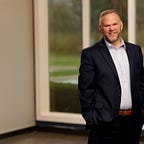The Interview: Kim Lear
Kim Lear is a corporate speaker, writer, researcher and trend spotter focused on the future of the workforce and marketplace. She founded Inlay Insights, a social insights company that identifies emerging cultural trends that impact the way we work, the way we buy, and the way we live. Kim is at the forefront of cutting-edge research to uncover cultural shifts that revolutionize how organizations engage employees and consumers.
She has keynoted for some of the most renowned companies in the world from clients such as American Express, Best Buy, Cisco Systems, Disney, General Mills, Linked In, Mastercard, Wells Fargo, and more. She is a sought-after expert and has been featured on NPR as well as national publications such as The Wall Street Journal, The Huffington Post, USA Today and more. This interview originally appeared in the October 2017 issue of the 1635 newsletter. Subscribe here.
1. My experience in my school was…
Up and down, just like most people. Being a teenage girl is hard! Keep in mind, I was in the K-12 system BEFORE social media. Today, young people, particularly young women, have so much more to deal with than I did. Navigating the social structures of middle school and high school will always be challenging and I remember trying many outlets before really finding my footing in school. During this formative time, I am so grateful for the teachers who were able to pull me out of my teenage haze and help me find my strengths. My composition teacher, Mr. Maas, taught me so much about the power of words. His passion for storytelling, articulation and critical thinking still impact me profoundly today.
2. When I think of education, I…
…think about the fundamental backbone of a working democracy and endless hope for the future. It is through education that we can achieve a more just society and opportunities for social mobility. My mom teaches ESL to adults, mostly to the refugee population in Minneapolis. Through her work and passion, I have seen the power of literacy and education. Without access to education, people become voiceless and powerless.
3. If I were telling the story of education…
I would talk about the lessons that are learned inside and outside of the classroom. Where we go to school, the ownership we take over our education, our parents’ involvement, our friend group, extra-curricular activities and more all make up the story of how young people are educated and how they grow up.
4. Your work at Inlay Insights centers around preparing organizations for the workforce and marketplace of the future. What should those who work in education know about these insights to better prepare students and families for the future?
Expectations have changed. Students and parents are eager to move away from school systems based in industrial era thinking. In my focus groups, the teenagers are quick to tell me that they are growing up in a highly competitive world. This new world requires real-life skills and constant adaptability. They want to walk into college knowing what they want to be and how they plan on getting there. This puts more pressure on them throughout high school to identify their strengths and choose their path.
Educators can prepare students and families for the future by explaining the importance of learning how to learn. These young people today will be reinventing themselves constantly throughout their lives because the rate of change has sped up. Although there is a push for tactical knowledge, it is still the responsibility of educators to focus on the theoretical aspect of learning as well. Why should we still read “Slaughterhouse 5” or “To Kill a Mockingbird”? Because they make us think. The ability to think critically and learn quickly will be non-negotiable skills in the future of work.
5. Schools are often the slowest change agents and hold on to “sacred cows” mainly out of fear of change. How do you get organizations to move beyond the status quo and embrace generational shifts?
First, we have to recognize where this fear comes from. Sometimes, fear of change comes from nostalgia. Sometimes, we fear change because we don’t want to make a mistake and let down students. Recognizing and legitimizing where this fear comes from is an important step. Second, we can’t play the blame game when it comes to the topic of generations. We’re better able to adapt to changing needs and expectations when we stop focusing on who is better or worse and we start focusing on what a new generation truly needs to thrive.
1635 is a newsletter and a monthly moment to propel us forward in public education. Each month it features long-form content from those working both inside public education and from those on the outside looking in. We can learn so much from both viewpoints. The newsletter delivers the last Tuesday of every month. Subscribe.
